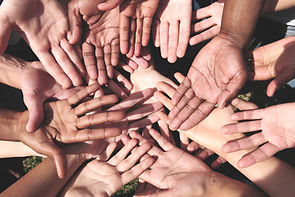
You Madder! We Madder! From Denzil going plant based in Gover, to Francois recycling in Moldova. We are all connected. Our motto of 'one and all' could not be a better description of how we are all having to adapt to the climate crisis.
Here is some global, national, and local information about the climate crisis
Carbon Dioxide makes up 76% of total Greenhouse Gas Emissions. Methane is 16% and nitrous oxide 6%. Fluorinated gases like HFCs, PFCs, SF6 and NF3, from industrial processes, make up 2% of global emissions. Methane, Nitrous oxide and the Fluorinated gases are much more potent than CO2 in terms their ability to trap heat, but also they have a shorter amount of time in the atmosphere. For example: CO2 can last over a 1000 years and Methane only 10years, but methane is 10 times more potent and eventually it turns into Carbon Dioxide. This is why we can end up creating a false picture if we only focus on carbon dioxide, that is why it is so important to count all the Green House Gas Emissions (GHG's).
Which of our activities contribute the most to GHG emissions?

This is a snapshot of GHG emissions per activity that we engage in on our planet. It is difficult to understand the scale of our impact from this chart but we can see where we can make the largest differences and what to focus on. 'Energy in industry' is the largest defined sector at 24.2% and Agriculture, forestry and land use coming in at 18.4%.
It is good to remember that habitat loss, pollution, water scarcity, extinction and biodiversity loss are just as important and contribute significantly to our impact in the world as much as GHG emissions.
This chart is Cornwall's Carbon output by sector. To make a difference in GHG reduction we need to concentrate on industry, buildings, transport and agriculture to make large differences, but this doesnt mean the small stuff you do in the kitchen and in your car doesnt count!

So what about Cornwall's output?
What about St Austell?
This chart shows our local household emissions, by geographical area. St Austell parish is represented and compared with the English national average. You can find and compare your parish by clicking on the link below. St Austell households have lower carbon emisions than the national average, but this is not yet carbon neutral or reason to be complacent.

What does the International Panel on Climate Change have to say?
'The world is running out of time to prevent runaway climate collapse, but greenhouse gas emissions can still be halved by 2030 if nations dramatically improve energy efficiency, protect nature and continue to accelerate the deployment of renewable energy. The IPCC also say that, in order to limit warming to 1.5 degrees Celsius, emissions would need to peak before 2025, a fall by 43%; a target that is looking increasingly out of reach owing to government and corporate inaction. That means some extreme climate impacts are likely locked in.' - IPCC report 2022
The IPCC's has researched and published 'what has the greatest potential at smallest cost to make a difference in the shortest amount of time for our world:' There are many more more points but here are the top four. Click on the red button to be taken to the original document.
What does Cornwall Council have to say?
In 2019, Cornwall Council declared a climate emergency and pledged to be Carbon Neutral by 2030, ahead of the IPCC 2050 deadline. Four years later the climate emergency development and planning document has finally been ratified and will be adopted as from February 21st 2023. Of course what we would like to see is action and less plans, but please click on red button to view the Document.
What about us?

There are thousands of us that are tirelessly volunteering, applying for grants, lobbying the council, going on protests, writing letters to newspapers, doing beach cleans, holding community events and joining up the dots to help make Cornwall, our home, resilient and ready for what is happening around us. It really is a one and all aproach. Have you watched the superb Cornwall Climate Stories? this is a good place to understand our home and what is happening.
What about you?
All the volunteer groups and governments in the world can't change your habits, there are things that you are also responsible for. It is up to you to change your electricity provider, turn off your lights, stop buying plastic things you dont actually need, eat a plant based diet, pick up after yourself and change your bank account. There are literally hundreds of people and groups offering all the support you need from finance to ideas. Including this website! get it together, talk and do something.


Click on the menu below and explore our web pages to find volunteer groups, support and businesses that are trying to make things better in St Austell and beyond!






